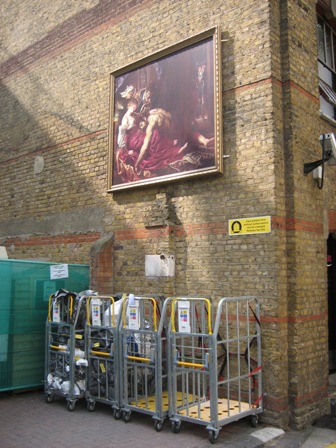
Culture may be ubiquitous but is it in danger of getting sidelined without the quality of leadership the sector requires?
Reaching for the heights: the NCF Leading Learning Programme
Sue Isherwood explains how the National Culture Forum Leading Learning Programme plans to transform the nature of cultural leadership across the UK.
We all know that local government spends more on culture than the Department for Culture, Media and Sport. We also know that within individual local authorities cultural services officers do not always achieve the profile and clout they would wish; after all each individual local authority only spends on average around 2% of its budget on culture, with the arts proportion of the spend being even smaller.
The sector has long bemoaned its lack of statutory status and often feels it is playing off the back foot. Where are the people who can champion culture and its role in delivering quality of life for communities? Where are the strategically placed people who can argue cogently at the right tables for the crucial role arts and culture has in delivering across all the priorities of sustainable community strategies and local area agreements?
At a recent cultural leadership seminar, Jane Glaister, head of culture for Bradford, gave a more positive picture of where local authorities have been and where they could be. The late nineteenth century city fathers did see culture for their communities as central. They laid out our landscaped public parks, commissioned modern architects to create magnificent town halls and supported the building of public baths, galleries and theatres. After a period of command and control from the centre we are now entering a time for more power to return to local determination. This is a major opportunity for cultural officers but do we have the confidence and positioning to take up the challenge?
Enter the National Culture Forum’s Leading Learning Programme. The Cultural Leadership Programme has acknowledged the scenario outlined above and is generously supporting a major development programme, aimed specifically at senior cultural services officers in local government. We expect to run three nine- to ten-month programmes over the next three years, the first of which will be heavily subsidised. Twenty five to thirty people each year, drawn from all over the UK, will have the crucial opportunity to take time to reflect on their own leadership skills and to be supported in strengthening and developing them further.
The programme can take advantage of a study of other cultural management courses and adapt their approaches to those working in a local government context. An understanding of what it means to work within an overtly political context and within the culture of a large generalised public sector organisation will be central.
Currently the programme is designed to have five major elements which support the participants in a variety of ways. Firstly each participant will be asked to undertake a 360 degree assessment of his or her leadership strengths and potential. They will receive support to interpret the findings and to develop a personal development plan from these.
The first programme will run from October 2008 to July 2009 and will commence in earnest with a three-day residential at a midlands venue. This will be a mixture of some guest speakers and group work, concentrating on personal leadership development issues explored through case studies and other exercises. Later in the programme there will be two further 24-hour residentials to build and reflect on learning.
Each participant will have a personal mentor, chosen from a bank of senior managers with extensive local government experience; we hope to include directors and chief executives from across the country and currently SOLACE and IDeA are helping to locate these. Relationships will be brokered and help will be given to ensure the strongest fit with individual needs. We are asking mentors to be prepared to give one day a month to their mentees.
Peer learning is also an important part of the mix, so we are also planning for every participant to join one of four facilitated action learning sets which will meet bi-monthly over the period of the programme. These may be based on geography but could also be based on particular shared interests and challenges.
Finally, the programme will be supported by an interactive website which will contain all the residential course materials, secure spaces for mentor/mentee discussions, user forums and work shadowing/exchange opportunities.
This programme is aimed at people who are interested in making a real difference to the life of communities and a real difference to their own capacity to lead and deliver. We want to see some of the next generation of local authority directors and chief executives rising from the programme. If this happens we can start to change the culture of local government and build on the vision and ambition of those early philanthropic pioneers.
Sue Isherwood is director of the National Culture Forum Leading Learning Programme.
For further details of the programme contact Sue at the National Culure Forum
The Leisure Review, September 2008
© Copyright of all material on this site is retained by The Leisure Review or the individual contributors where stated. Contact The Leisure Review for details.
